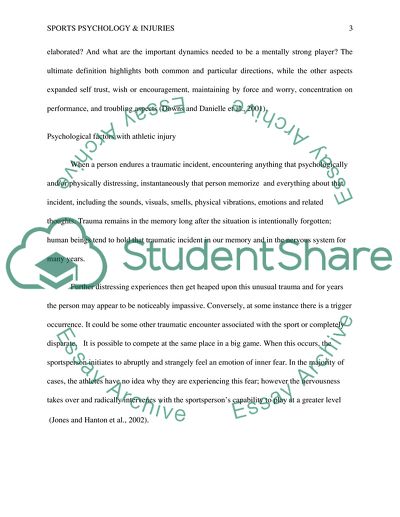Cite this document
(Sports Psychology And Mental Toughness Research Paper, n.d.)
Sports Psychology And Mental Toughness Research Paper. Retrieved from https://studentshare.org/sports-and-recreation/1802677-sports-psychology-and-injuries
Sports Psychology And Mental Toughness Research Paper. Retrieved from https://studentshare.org/sports-and-recreation/1802677-sports-psychology-and-injuries
(Sports Psychology And Mental Toughness Research Paper)
Sports Psychology And Mental Toughness Research Paper. https://studentshare.org/sports-and-recreation/1802677-sports-psychology-and-injuries.
Sports Psychology And Mental Toughness Research Paper. https://studentshare.org/sports-and-recreation/1802677-sports-psychology-and-injuries.
“Sports Psychology And Mental Toughness Research Paper”, n.d. https://studentshare.org/sports-and-recreation/1802677-sports-psychology-and-injuries.


